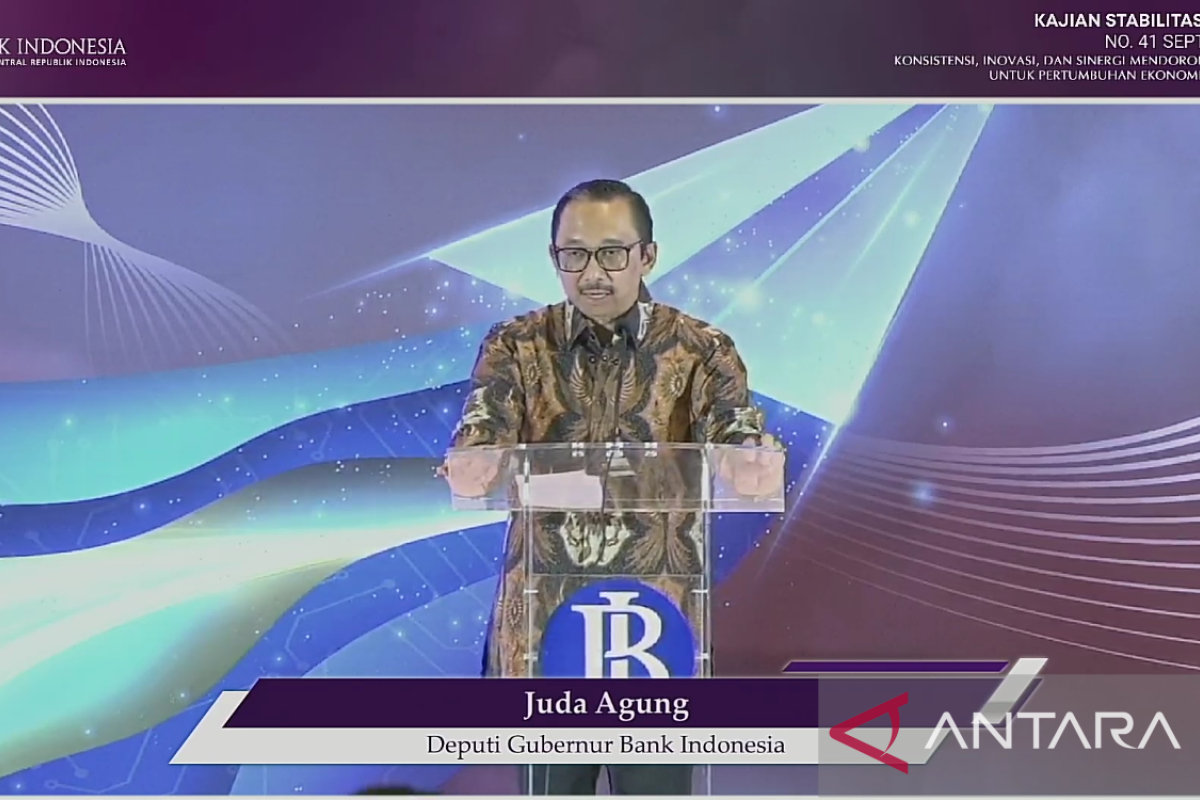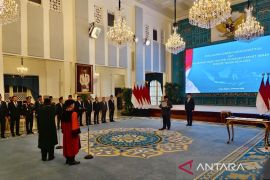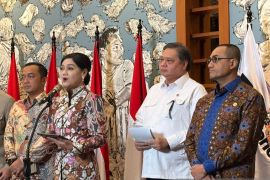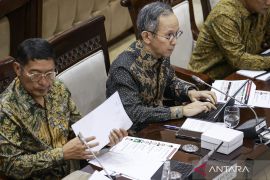With the crisis caused by the Ukraine and Russia wars yet to end, Agung stated that the world is now facing the conflict between Hamas and Israel, which can trigger an increase in food and energy prices and will lead to global inflation.
"This must be responded to by monetary policy that encourages higher interest rates or 'higher for longer,'" Agung stated at the launch of the Financial Stability Study Book (KSK) No. 41 here on Monday.
He pointed out that in the last one or two months, capital flow had been highly volatile, thereby resulting in the weakening of exchange rates globally.
"As the US' yield increases and the dollar strengthens, other countries' currencies are highly volatile," he stated.
With these various conditions, he revealed that the central bank finally raised the BI 7-Day Reverse Repo Rate (BI7DDR) by 25 basis points to a level of six percent during the BI Board of Governors' Meeting on October 18-19.
"So far, we only made efforts to maintain stability with market intervention. However, with the rapid increase in US yields, the stronger dollar, we have to add 'ammunition' by raising the interest rates," he remarked.
Earlier, BI Governor Perry Warjiyo had stated that the increase in BI's benchmark interest rate aimed to strengthen the rupiah exchange rate stabilization policy amid the increasing global uncertainty.
In addition, the increase in interest rate is a pre-emptive and forward-looking measure to mitigate imported inflation.
BI strives to maintain inflation in the range of three percent, give or take one percent, for the rest of this year and 2.5 percent, give or take one percent, in 2024.
Related news: Trade balance surplus supports external economic resilience: BI
Related news: Indonesia's inflation falls to 3 percent, among lowest in the world
Translator: M Heriyanto, Kenzu
Editor: Azis Kurmala
Copyright © ANTARA 2023












